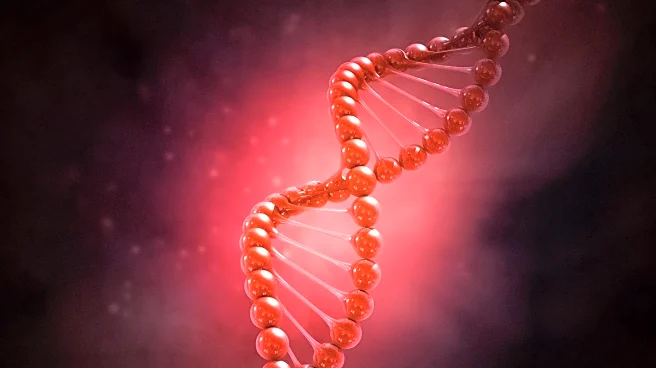What's Happening?
A comprehensive genetic study involving over 1.2 million participants has identified more than a dozen new gene regions associated with dyslexia. Led by molecular geneticist Hayley Mountford from the University of Edinburgh, the research is the largest of its kind to date. The study identified 80 regions linked to dyslexia, with 36 of these regions being newly reported as significant. Notably, 13 of these regions are novel discoveries with no prior association with dyslexia. The findings highlight that many of these genes are involved in early brain development and share commonalities with ADHD, which often co-occurs with dyslexia. The study also found correlations between dyslexia and chronic pain measures, suggesting potential shared biological bases.
Why It's Important?
The identification of new gene regions associated with dyslexia is a significant advancement in understanding the genetic underpinnings of neurodevelopmental disorders. This research could lead to improved diagnostic tools and targeted interventions for individuals with dyslexia. By uncovering genetic links, the study provides insights into the complex interactions between genetics and neurodevelopmental traits, potentially influencing future research and treatment strategies. The overlap with ADHD and chronic pain measures also opens avenues for exploring shared biological mechanisms, which could benefit broader neurodevelopmental and pain management research.
What's Next?
The study's findings may prompt further research into the genetic and biological mechanisms underlying dyslexia and related disorders. Researchers might explore the newly identified gene regions to develop targeted therapies or interventions. Additionally, the correlations with chronic pain and ADHD could lead to interdisciplinary studies examining the shared genetic pathways. These efforts could ultimately contribute to more comprehensive approaches in managing and supporting individuals with dyslexia and co-occurring conditions.
Beyond the Headlines
The study's revelations about genetic associations with dyslexia may also have cultural and educational implications. Understanding the genetic basis of dyslexia could challenge existing perceptions and stigma associated with the condition, promoting a more inclusive approach in educational settings. Furthermore, the research underscores the importance of considering genetic diversity in neurodevelopmental studies, which could lead to more personalized and effective educational strategies.










